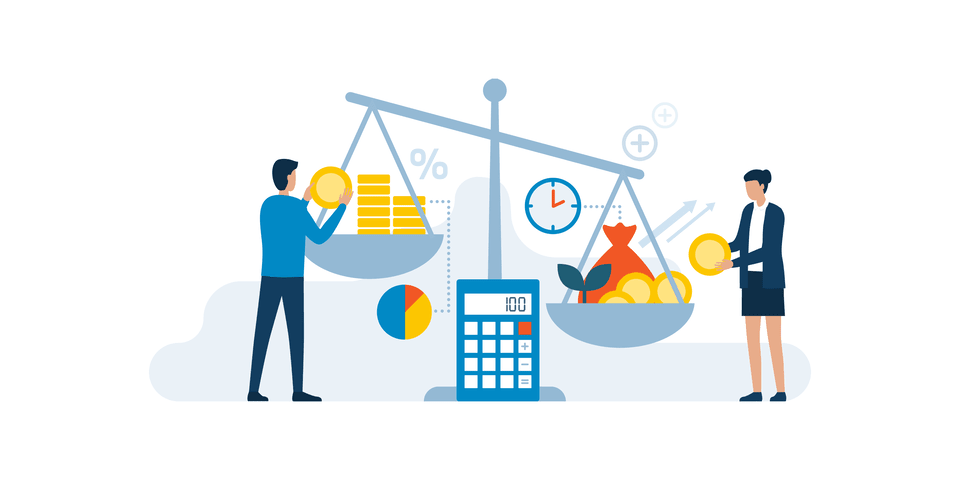
A forecast is more flexible and dynamic than a budget, as it can be updated regularly to reflect the changing conditions and uncertainties in the market, industry, or environment. A forecast helps you anticipate and respond to opportunities and risks, and adjust your strategies and actions accordingly. Since budgets are generally made to last an entire year, a budget might constrain necessary spending (or saving) if any unexpected situations in cash flow arise. In fact, financial forecasting, budgeting, and planning each serve a unique purpose. A plan serves as the foundation, a budget guides how to allocate cash, and a forecast projects the financial future of the business. Budgeting is not as close to reality because you are essentially putting down goals and where you see your business at a particular time.
So, take those projected expenses and determine the monthly total operating cost of your business. A financial forecast plays an important role in helping businesses put together realistic goals and plans. Forecasts are also highly useful as showpieces for investors and lenders. A forecast is one of the most useful things you can create to develop your business strategy and help you make key decisions about where you will focus.
What’s a budget?
This type of budgeting involves adjusting the current budget that you have for your business. All you need to do is think of what you want and then set your budget according to that value. For example, if you want your business to grow by 5% in the next year then you will increase your budget by 5% to justify your spending. Forecasting helps the business in taking immediate actions by examining and analyzing the data provided. It can be done by adopting qualitative or quantitative or the combination of the two methods. When you prepare a budget you’re steering the ship in the direction you want to travel.
The budgets are prepared for the forthcoming period, considering various objectives of the business organization such as vision, mission, goals, objectives, and strategies. In other words, budget indicates the business plans and therefore planning should difference between budget and forecast be done before budgets are prepared. It is prepared by the management of the enterprise keeping in view the past experiences. After the preparation of budgets, they are used to direct and coordinate business activities to achieve the objectives.
Budget vs. Forecast: Key Differences You Need to Know
It considers current data, market trends, and growth rates to predict future revenue, expenses, and cash flow. A budget is a detailed statement of expected revenues and expenditures that quantifies the tactical plans of the management to reach a desired goal for the company during a specified period. Forecasting estimates future outcomes that quantify the company’s direction during the forecasted period.
- GoCardless helps you automate payment collection, cutting down on the amount of admin your team needs to deal with when chasing invoices.
- Service and consulting organisations will generally use these forecasts to determine staffing levels.
- A budget and a forecast are both tools that help you set goals, allocate resources, monitor progress, and adjust actions, but they are not the same thing.
- Most businesses create a budget annually and implement it from the start of the fiscal year.
TallyPrime is a robust business accounting software that enables you to budget and forecast so you are always in control of your business finances. A budget is a management tool used to forecast revenues and expenses during a specified period to identify avenues for cost-cutting and be more efficient and productive in operations. Budgets also ensure a planned approach toward managing cash flows and debt requirements in the business. Typically, budgets have a maximum time horizon of one accounting period and are short-term.
Forecast
A budget is a detailed plan of how you intend to spend and earn money over a specific period of time, usually a year. A budget reflects your strategic objectives, priorities, and assumptions, and serves as a baseline for measuring your actual performance against your expectations. A budget also helps you control your costs, manage your cash flow, and evaluate your profitability. If you are involved in planning and managing the financial performance of your business, you need to know the difference between a budget and a forecast, and why it is important to understand. A budget and a forecast are both tools that help you set goals, allocate resources, monitor progress, and adjust actions, but they are not the same thing.

You might also create a forecast for broad categories of expenses – all marketing expenses, for example. A marketing budget, on the other hand, would specify exactly how much to spend on TV advertising and brochures. Just like with a good home budget, a business budget provides guidelines for exactly how much should be spent in different areas of a business. Sales budgets will detail specific sales targets for specific products. They are granular and detailed in nature and are usually built to help salespeople stay on track. You will compare your business’s budget to actual results to determine the extent to which you’re varying from expected performance.
No extra money for government departments, despite higher-than-expected prices and wages, and the tight spending plans beyond the next election were extended for a further year. The OBR cautioned that “reducing the public capital stock as a share of GDP… If sustained… would likely also have a material, negative impact on potential output beyond the forecast horizon”. But, for now, this remains a downside risk which is not reflected in the official economic and fiscal forecasts.
Though there has been less economic pain this year than last, the OBR warns that next year is likely to be tougher than previously expected due to the impact of interest rates. Higher-than-expected inflation has led the Bank of England to raise its interest rate to 5.25%; the OBR had expected this to peak at 4.3%. Higher interest rates impact households directly, by raising mortgage costs and lowering house prices, and also has ‘second round’ effects as people consume less.